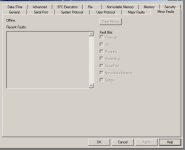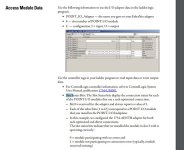Is there any nondestructive bit that is set when a remote I/O is not responding?
I'm wanting to program in a preemptive warning and controlled process stop when i lose network connection to a remote I/O device.
1756-L72 controller using Ethernet IP for remote point I/O
I'm wanting to program in a preemptive warning and controlled process stop when i lose network connection to a remote I/O device.
1756-L72 controller using Ethernet IP for remote point I/O





